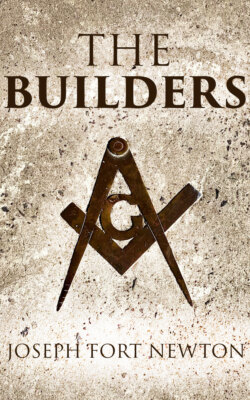Читать книгу The Builders - Joseph Fort Newton - Страница 14
На сайте Литреса книга снята с продажи.
CHAPTER III
THE DRAMA OF FAITH
ОглавлениеTable of Contents
Man does not live by bread alone; he lives by Faith, Hope, and Love, and the first of these was Faith. Nothing in the human story is more striking than the persistent, passionate, profound protest of man against death. Even in the earliest time we see him daring to stand erect at the gates of the grave, disputing its verdict, refusing to let it have the last word, and making argument in behalf of his soul. For Emerson, as for Addison, that fact alone was proof enough of immortality, as revealing a universal intuition of eternal life. Others may not be so easily convinced, but no man who has the heart of a man can fail to be impressed by the ancient, heroic faith of his race.
Nowhere has this faith ever been more vivid or victorious than among the old Egyptians.35 In the ancient Book of the Dead—which is, indeed, a Book of Resurrection—occur the words: "The soul to heaven; the body to earth;" and that first faith is our faith today. Of King Unas, who lived in the third millennium, it is written: "Behold, thou hast not gone as one dead, but as one living." Nor has any one in our day set forth this faith with more simple eloquence than the Hymn to Osiris, in the Papyrus of Hunefer. So in the Pyramid Texts the dead are spoken of as Those Who Ascend, the Imperishable Ones who shine as stars, and the gods are invoked to witness the death of the King "Dawning as a Soul." There is deep prophecy, albeit touched with poignant pathos, in these broken exclamations written on the pyramid walls:
Thou diest not! Have ye said that he would die? He diest not; this King Pepi lives forever! Live! Thou shalt not die! He has escaped his day of death! Thou livest, thou livest, raise thee up! Thou diest not, stand up, raise thee up! Thou perishest not eternally! Thou diest not!36
Nevertheless, nor poetry nor chant nor solemn ritual could make death other than death; and the Pyramid Texts, while refusing to utter the fatal word, give wistful reminiscences of that blessed age "before death came forth." However high the faith of man, the masterful negation and collapse of the body was a fact, and it was to keep that daring faith alive and aglow that The Mysteries were instituted. Beginning, it may be, in incantation, they rose to heights of influence and beauty, giving dramatic portrayal of the unconquerable faith of man. Watching the sun rise from the tomb of night, and the spring return in glory after the death of winter, man reasoned from analogy—justifying a faith that held him as truly as he held it—that the race, sinking into the grave, would rise triumphant over death.
